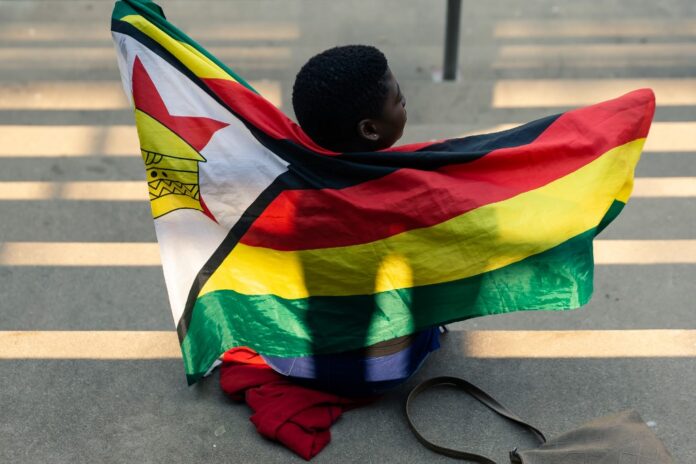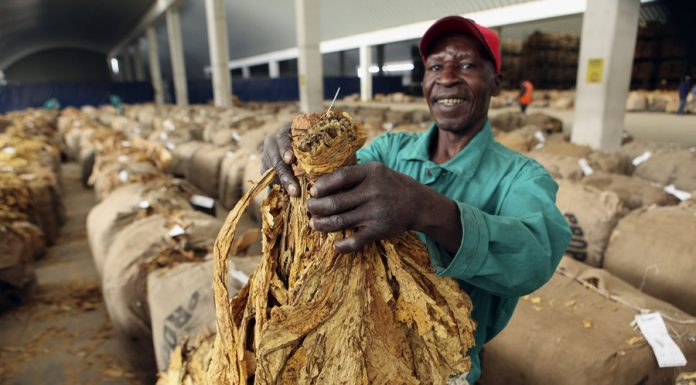
Hundreds of thousands of people trapped in the misery of statelessness in Zimbabwe have been forced to the margins of society, and struggle to access education, healthcare and housing, Amnesty International said today in a new report.
The organization interviewed descendants of migrant workers who settled in Zimbabwe pre-independence, as well as survivors of the Gukurahundi massacres of the 1980s; two groups locked out of citizenship by a cruel combination of discrimination and bureaucracy.
The report, We are like “stray animals”, details how Zimbabwe’s discriminatory and arbitrary nationality laws have left generations of migrant workers and their families marginalized in the only country they have ever called home.
Meanwhile, thousands of survivors of the horrific Gukurahundi massacres, one of the bloodiest episodes of Robert Mugabe’s rule, are denied citizenship because they cannot provide the death certificates of relatives, which are required to prove Zimbabwean nationality.
“For Zimbabwe’s stateless, everyday life is filled with obstacles. Accessing education, healthcare and employment can be a nightmare, and the sense of exclusion and rejection is soul destroying,” said Muleya Mwananyanda, Amnesty International’s Deputy Director for Southern Africa.
“The Zimbabwean authorities must take concrete action to address this crisis, including mapping and registering all stateless people. Authorities must ensure laws are in line with Zimbabwe’s own Constitution, as well as international human rights law.”
In Zimbabwe, approximately 300,000 people are currently at risk of statelessness, according to the United Nations High Commissioner for Refugees. Lack of official data means that the exact number is unknown.
Migration and statelessness
Amnesty International research lays bare the devastating consequences of statelessness on the eve of 41 years of independence where many hoped to live in a country where they are treated equally, regardless of their political affiliation or ethnicity.
The current statelessness crisis in Zimbabwe has its roots in colonial history. The British colonial government largely depended on cheap migrant labour from Malawi, Mozambique and Zambia to grow its industries.
After independence in 1980, Zimbabwean authorities passed a series of discriminatory laws which have, over the years, effectively excluded, marginalized and disenfranchised the descendants of these workers.
For example, the 1984 Citizenship of Zimbabwe Act 23 was used to arbitrarily deprive persons of “foreign origin” of their right to a Zimbabwean nationality, even though most were entitled to citizenship under the Constitution.
Section 43 of Zimbabwe’s Constitution states that any resident who was born in Zimbabwe to parents with a claim to citizenship of any SADC state – including Malawi, Mozambique, Zambia and South Africa – is a Zimbabwean citizen by birth.
The Citizenship Act is not yet aligned to the Constitution and continues to be used by the Ministry of Home Affairs to deny citizenship arbitrarily and unfairly to descendants of migrant workers. In so doing the Citizenship Act gives almost unfettered discretion and arbitrary powers to both executive and junior officials to deny people their constitutional rights.
In 2001, a new law required descendants of migrant workers to renounce their ancestral nationality within six months, in order to be granted Zimbabwean citizenship. Many people were unable to do so because they did not hold the requisite identity documents. To be granted Zimbabwean citizenship, they first needed to prove that their parents had been nationals of other countries.
One man, Alex, whose father was Zambian, said: “I have no idea how I can locate my parents’ relatives as I have never been to Zambia.”
Alex does not have death certificates for either his father or his Zimbabwean mother. As a result, he has been denied citizenship, which prevented him from going beyond Grade 7 at school and means neither of his children have birth certificates.
Precarious futures
In this way, the legal limbo of statelessness is perpetuated across generations. Parents are denied birth certificates for their children if they cannot present their own, leaving their children facing precarious futures.
Without the necessary identity documents, many stateless children are unable to access education. Those who do attend school are often forced to drop out, or prevented from sitting their final exams.
Lulamani, a 23-year-old woman, said: “Life has been difficult and painful. I was brilliant at school, but I did not sit my final exams. Now I can’t get a decent job.”
One man Amnesty Interviewed, Petros, said: “My eldest child in primary school cannot play soccer for the school like other children because he does not have a birth certificate.”
Stateless people in Zimbabwe also face barriers to accessing health care. Pregnant women are excluded from critical life-saving services such as antenatal care and assistance during labour.
Botshiwe Dube, from Tsholotsho, told Amnesty International how she went to a health centre when she went into labour, but when she could not provide ID she was sent home to deliver her children.
All of Botshiwe’s children were born at home; she told Amnesty International that she feels they are treated like “stray animals because they are undocumented.”
Those without identity documents are also excluded from participating in political activities and from running their own businesses.
The Gukurahundi massacres and statelessness
When Zimbabwe gained independence in 1980 it was a deeply divided country. Tensions between the Robert Mugabe-led ZANU-PF and the Joshua Nkomo-led ZAPU led to an eruption of violence between the Zimbabwe African National Liberation Army (ZANLA) and the Zimbabwe People’s Revolutionary Army (ZIPRA), the respective military wings of ZANU-PF and ZAPU.
By early 1982, authorities were violently cracking down on ZIPRA forces in Matabeleland, the homeland of the Ndebele people. Special forces of the Zimbabwe National Army Fifth Brigade were deployed, who carried out atrocious attacks against not only militants but also ZAPU officials and other people.
The political tensions spilled into mass atrocities against the Ndebele people, and an estimated 20,000 people were killed between 1983 and 1987. Thousands were tortured and abducted, women were raped, and homes destroyed.
When the crackdown, known as operation Gukurahundi, was over, traumatized survivors had to grapple with the challenges of statelessness as they were required to produce death certificates as proof of their parents to apply for Zimbabwean nationality.
However, death certificates for people killed in the Gukurahundi operation were not issued, meaning that those who were orphaned as a result of the violence had no way of proving their parents’ nationality.
Vaina Ndlovu, 68, lives in Tsholotsho in Matebeland North. Vaina’s father was abducted by Fifth Brigade forces and never heard from again following his abduction. When Vaina tried to obtain a death certificate for her father, registry office officials told her they needed witnesses to confirm that her father was abducted during Gukurahundi, which Vaina’s family could not provide.
Statelessness resulting in violations of economic, social and cultural rights
Stateless people in Zimbabwe struggle to access housing, healthcare and education, violating their rights under the Constitution, as well as international and regional human rights treaties including the UN International Covenant on Economic, Social and Cultural Rights and the African Charter on Human and Peoples’ Rights, to which Zimbabwe is a State Party.
While states have a right to determine their citizenship laws, these laws must be in conformity with international human rights law. As such, domestic law and practices must not be discriminatory and must conform to international legal obligations to not render anyone stateless.
“Zimbabwe must make concrete and urgent changes to the law to bring the Citizenship Act in line with the Constitution. The authorities must take the necessary steps to ensure no further generations are condemned to the margins of society,” said Muleya Mwananyanda.
“The Zimbabwean authorities must publicly commit to creating an equal and inclusive society that accords citizenship to any person born on Zimbabwean soil, without discrimination based on national or ethnic origin.”
Amnesty International is calling on the Zimbabwean government to urgently take adequate measures to ensure the registration and restoration of Zimbabwean nationality to all those entitled to it, as provided for under the Constitution, including all those born and raised in Zimbabwe to foreign parents. – Amnesty International











